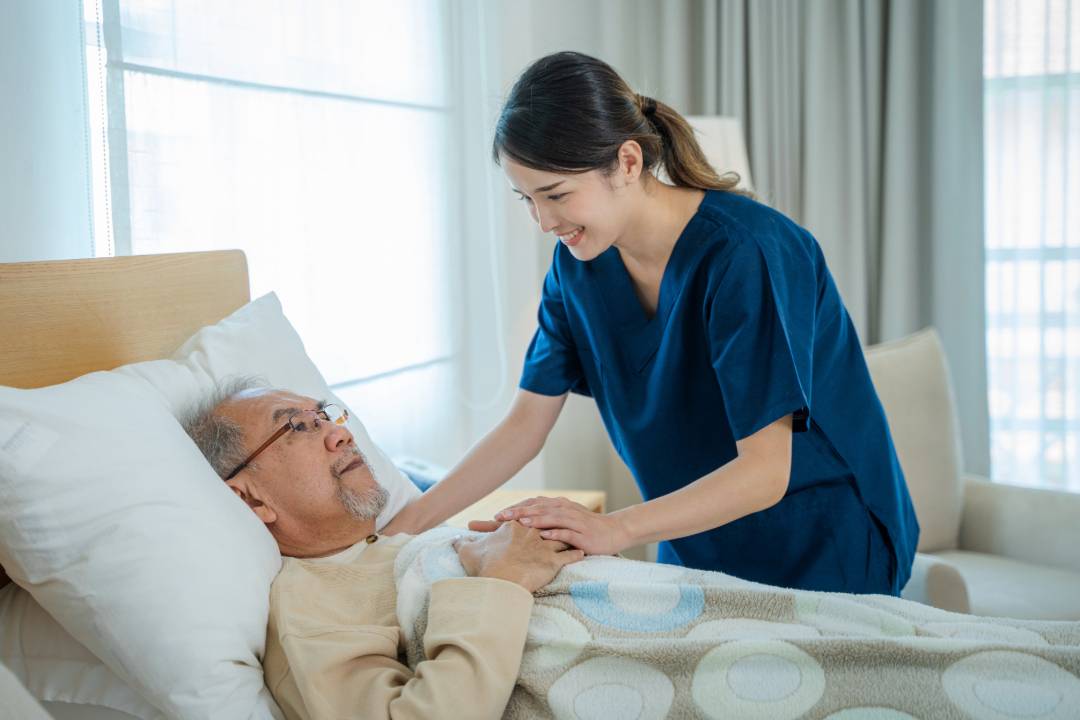
Caregiver Training: Essential Skills for Healthcare Pros
Caregiving plays a vital role in healthcare. You take care of people who are sick, elderly, or disabled. Many patients cannot do daily tasks on their own. They need help with eating, bathing, and moving. Some need medical care, while others need emotional support. A well-trained caregiver makes life easier for patients and their families.
Caregiving is not just about kindness. It also requires knowledge and skills. You must know how to handle emergencies, give basic medical care, and support patient health as a caregiver. Without proper caregiver training, this job can become stressful and risky. In this blog, you will learn about the most important skills that you must know about caregiving.
15 key skills that every healthcare professional should have
You provide essential support to patients who need help with daily activities, medical care, and emotional well-being. Proper caregiver training ensures you can perform your duties safely and effectively. Here are some of the most critical skills you must learn and practice in order to become a proficient caregiver:
1. Understanding patient needs:
Each patient has different needs. Some may need help with daily activities like bathing and dressing. Others may need emotional support or medical care. You must observe patients closely and understand their physical and emotional health.
Key skills:
- Listening carefully to patients
- Noticing changes in behavior or health
- Providing comfort and reassurance
2. Basic medical knowledge:
You must know basic medical skills. Knowledge of basic medical skills helps you respond quickly to emergencies and support medical treatments.
Key skills:
- Measuring vital signs (temperature, blood pressure, pulse)
- Giving first aid
- Helping with medication under supervision
3. Personal hygiene and sanitation:
Hygiene is very important in caregiving. Clean surroundings reduce infections and keep patients comfortable. You must follow hygiene rules to protect yourself and your patients.
Key skills:
- Keeping hands and surroundings clean
- Changing bed linens regularly
- Handling food safely
4. Helping with mobility:
Many patients have trouble moving. Your caregiving skills help them walk, change positions, and use mobility aids like wheelchairs. Moving patients safely prevents injuries.
Key skills:
- Lifting and transferring patients correctly
- Helping with walking and exercises
- Using wheelchairs and other aids properly
5. Nutrition and meal preparation:
Good nutrition is important for patient health. You must prepare meals based on medical requirements and dietary restrictions.
Key skills:
- Planning balanced meals
- Assisting with feeding when needed
- Following special diets (low-salt, diabetic, etc.)
6. Communication skills:
Clear communication helps in caregiving. You must talk to patients, families, and healthcare teams effectively. Be patient and kind while dealing with your patient.
Key skills:
- Speaking in a clear and calm way
- Explaining things simply to patients
- Writing reports about patient health
7. Emergency response:
You must act quickly in emergencies. Knowing how to respond to accidents, sudden illnesses, or falls is essential as it can ensure the safety of your patient.
Key skills:
- Recognizing emergency signs (choking, heart attack, stroke)
- Performing CPR and first aid
- Calling for medical help when needed
8. Administering Medication:
Some patients need daily medications. You must help them take medicines correctly. However, you should follow the doctor's instructions and avoid giving medications without approval.
Key skills:
- Reminding patients to take medicines on time
- Understanding medication side effects
- Storing medicines safely
9. Emotional support:
Patients often feel lonely, anxious, or depressed. You must provide emotional support and keep them engaged.
Key skills:
- Being patient and compassionate
- Encouraging social interactions
- Engaging patients in activities they enjoy
10. Handling patients with dementia or disabilities:
Some patients have memory loss or disabilities. You need special caregiver training to assist them. Make sure to be patient and use simple methods to help.
Key skills:
- Creating a safe and structured environment
- Using clear and simple instructions
- Managing challenging behaviors calmly
11. Legal and ethical responsibilities:
You must follow the rules and respect patient rights. Never harm or neglect patients while you are on duty.
Key skills:
- Maintaining patient confidentiality
- Respecting cultural and personal values
- Reporting abuse or neglect if seen
12. Time management:
Caregiving involves many tasks. Good time management helps you work efficiently without stress.
Key skills:
- Prioritizing important tasks
- Following a daily routine
- Avoiding delays in patient care
13. Record keeping:
Your role often needs you to document patient care. Good records help doctors and nurses track health progress.
Key skills:
- Writing accurate daily reports
- Noting changes in patient health
- Keeping medical information organized
14. Teamwork and collaboration:
Your work requires you to collaborate with doctors, nurses, and families. When you work as a team, it improves patient care.
Key skills:
- Sharing important patient information
- Respecting other healthcare workers
- Supporting family members in caregiving
15. Self-care for caregivers:
Caregiving is stressful. You must take care of your health, too. This helps in maintaining confidence and consistency in patient care.
Key skills:
- Taking breaks when needed
- Managing stress through relaxation
- Seeking support from others
Conclusion
Caregiving is a job that requires patience, knowledge, and skill. If you are trained as a caregiver, you improve the quality of life for patients. You help with physical, emotional and medical needs. Thus, high-quality caregiver training ensures you can handle emergencies, manage medicines and keep patients safe. It also allows you to work better with doctors and nurses.
However, you must keep learning and improving your skills to keep up with the constantly changing methods of patient care. The proper caregiver training prepares you for all challenges. Thus, if you are well-trained, you make a big difference in the lives of patients and their families.

Comments (0)